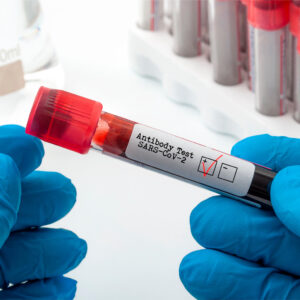Clinical Researcher—September 2020 (Volume 34, Issue 8)
SCIENCE & SOCIETY
Al O. Pacino; Yonnie Otieno
International efforts to curb the spread of COVID-19 have been on the rise. As a result, a focus has been put on the need for the discovery of lifesaving treatments and prevention. Cooperation between governments, biotechnology companies, and the scientific community has led to a greater understanding of the importance of modern clinical trials.
Unlocking Treatment Drugs, Vaccine Prospects, and New Testing Kits
COVID-19 cases globally are currently managed by a variety of treatments, including repurposed existing drugs and drugs that are still in experimental stages of development. Antimalarial, upper respiratory antibiotic, and antiviral treatments have all been administered in some cases on a compassionate basis for the disease. At the same time, scientists are collaborating with government labs, biopharmaceutical companies, and academic medical centers to start enrolling patients into clinical trials.
Clinical studies on the SAS-CoV-19 virus pathogenesis can provide insights for test kit development, and on the complex immunological mechanisms of vaccine candidates that may ultimately stop COVID-19 transmission. Historically, the success of other vaccines for various conditions have led to our understanding of antibodies as an indispensable component for combatting highly contagious diseases through medicine and biomedical research.
The COVID-19 blood plasma antibodies, specifically IgG and IgM, fight and eventually neutralize COVID-19. Naturally, antibodies protect us from diseases and re-infection transmissions. Interestingly, the causative relationship between microbes and diseases was first studied in Germany in 1884 by two great scientists, Robert Koch and Friedrich Loeffler, who postulated the disease process as a cell-based phenomenon.
IgG and IgM antibodies provide the silver lining answers to this latest pandemic. Antibodies fight diseases and the cell keeps a memory of the specific invading protein’s antigens. Similarly, blood plasma from a donor who has fought off infection (convalescent plasma) can be passively exchanged in order for another person to gain protective antibodies for COVID-19. The effectiveness of such donated plasma is achieved by the mimicking of vaccination principles by which neutralizing antibodies are released to defend the body and confer immunity to an invading virus.
From 2014 to 2016, during the Ebola epidemic, three West African nations—Liberia, Sierra Leone, and Guinea—rolled out convalescence plasma antibodies from Ebola virus survivors as a treatment option. Right now, clinical trials are again looking at safety and efficacy protocol of COVID-19 convalescent plasma.
Hybrid Trials and the Modernization of Clinical Trials
In this extraordinary time, the biopharma and medical device wings of the industry are coming together to develop vaccines, new prophylaxis drugs, and accurate test kits options. After preclinical activities, the next stage is to quickly identify a network of sites for trials. We should be able to use highly valuable digital applications to connect, pick, and choose sites of excellence.
It is also becoming necessary, with social distancing being followed, to apply a range of both virtual and non-virtual digital options for monitoring and advancing telemedicine care tools in clinical research. Hybrid clinical trials ought to share and exchange regulatory information for business purposes, but also require modern digital systems that efficiently implement mandatory quality assurance management.
Bureaucratic hurdles can be mitigated with the support of robust regulatory and proficiency systems for all training standards and clinical compliance. Altogether, the net result can be the elimination of fraud, waste, and abuse in the healthcare and clinical research processes. A credible third-party institution oversight locally trusts and verifies all applications at the source.
For sponsors, quickly connecting to a global network of sites for either centralized or decentralized clinical trials offers opportunities for partnerships with hybrid clinical trial service providers. Meanwhile, project managers need to be able to deliver trainings, quality operating standards, protocols, and tracking for reliable clinical results to follow. Overall, updated clinical trial processes can lead to the expediting of human subject protections for institution-based and online enrollments into studies.
The Next Milestone
As with any other healthcare product, designing effective testing kits and the clinical trials for evaluating them takes time, but it is essential for new COVID-19 tests to meet the tenets of biomedical Good Manufacturing Practice before such equipment can be marketed. In the meantime, stakeholders need to stress the international cooperation that can be achieved through technology-based, hybrid clinical trial models that are designed to ensure patient safety and adherence to Good Clinical Practices.
Regulatory authorities such as the U.S. Food and Drug Administration and European Medicines Agency oversee registration and use of prophylaxis or vaccines and medical devices, but the current evaluation time for this process must be reduced. A post-COVID-19 future is possible in which breakthroughs will continue to unfold as public benefit organizations, governments, private industry, and nonprofit organizations collaborate on scales rarely, if ever, seen before.

Al O. Pacino is President at BlueCloud® by HealthCarePoint Professional Collaborative Networks, based in Cedar Park, Texas, and a former member of the Editorial Advisory Board for ACRP.

Yonnie Otieno is Manager at BlueCloud® Africa by HealthCarePoint Professional Collaborative Networks, based in Nairobi, Kenya.
